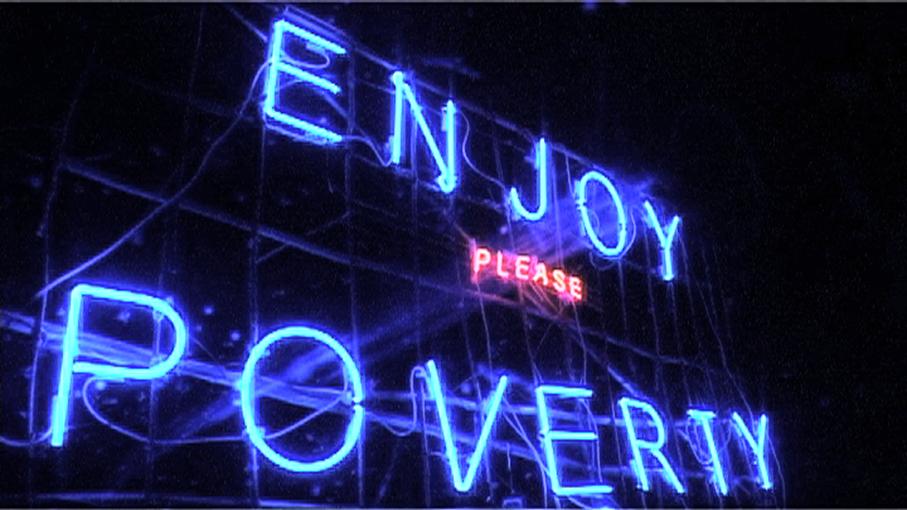Wellness

[DE]
“… The slow collapse of the social contract is the backdrop for a modern mania for clean eating, healthy living, personal productivity, and “radical self-love” … The more frightening the economic outlook and the more floodwaters rise, the more the public conversation is turning toward individual fulfillment as if in a desperate attempt to make us feel like we still have some control over our lives. …
Can all this positive thinking be actively harmful? Carl Cederström and André Spicer, authors of The Wellness Syndrome, certainly think so, arguing that obsessive ritualization of self-care comes at the expense of collective engagement, collapsing every social problem into a personal quest for the good life. ‘Wellness,’ they declare, ‘has become an ideology.’ …
As part of Cameron’s changes to the welfare system, unemployment was rebranded as a psychological disorder. … in the teeth of the longest and deepest recession in living memory, the jobless were encouraged to treat their ‘psychological resistance‘ to work by way of obligatory courses that encouraged them to adopt a jollier attitude toward their own immiseration. …
The wellbeing ideology is a symptom of a broader political disease. … We are supposed to believe that we can only work to improve our lives on that same individual level. …
The isolating ideology of wellness … persuades all us that if we are sick, sad, and exhausted, the problem isn’t one of economics. … Society is not mad, or messed up: you are. … [This ideology] prevents us from even considering a broader, more collective reaction to the crises of work, poverty, and injustice. …
It would be nice to believe that all it takes to change your life is to repeat some affirmations and buy a planner, just as it was once comforting for many of us to trust that the hardships of this plane of existence would be rewarded by an eternity of bliss in heaven. There is a reason that the rituals of wellbeing and self-care are followed with the precision of a cult (do this and you will be saved; do this and you will be safe): It is a practice of faith. …
With the language of self-care and wellbeing almost entirely colonized by the political right, it is not surprising [on the other hand] that [with] progressives, liberals, and left-wing groups … positive thinking has become deeply unfashionable. …
Anxious millennials now seem to have a choice between desperate narcissism and crushing misery. Which is better? …
The problem with self-love as we currently understand it is in our view of love itself, defined, too simply and too often, as an extraordinary feeling that we respond to with hearts and flowers and fantasy, ritual consumption and affectless passion. Modernity would have us mooning after ourselves like heartsick, slightly creepy teenagers, taking selfies and telling ourselves how special and perfect we are. This is not real self-love …
The harder, duller work of self-care is about the everyday, impossible effort of getting up and getting through your life in a world that would prefer you cowed and compliant. … Real love … is not a feeling, but … an action. It’s about what you do for another person over the course of days and weeks and years, the work put in to care and cathexis. That’s the kind of love we’re terribly bad at giving ourselves, especially on the left.
The broader left could learn a great deal from the queer community, which has long taken the attitude that caring for oneself and one’s friends in a world of prejudice is not an optional part of the struggle – in many ways, it is the struggle. … The ideology of wellbeing may be exploitative, and the tendency of the left to fetishize despair is understandable, but it is not acceptable – and if we waste energy hating ourselves, nothing’s ever going to change. If hope is too hard to manage, the least we can do is take basic care of ourselves. On my greyest days, I remind myself of the words of the poet and activist Audre Lorde, who knew a thing or two about survival in an inhuman world, and wrote that self care ‘is not self-indulgence – it is self-preservation, and that is an act of political warfare.’
aus: Laurie Penny: Life-Hacks of the Poor and Aimless. On negotiating the false idols of neoliberal self-care The Baffler, July 08, 2016 [im Internet]
Abb.: Renzo Martens: Enjoy poverty, 2009, im Internet.
07/16